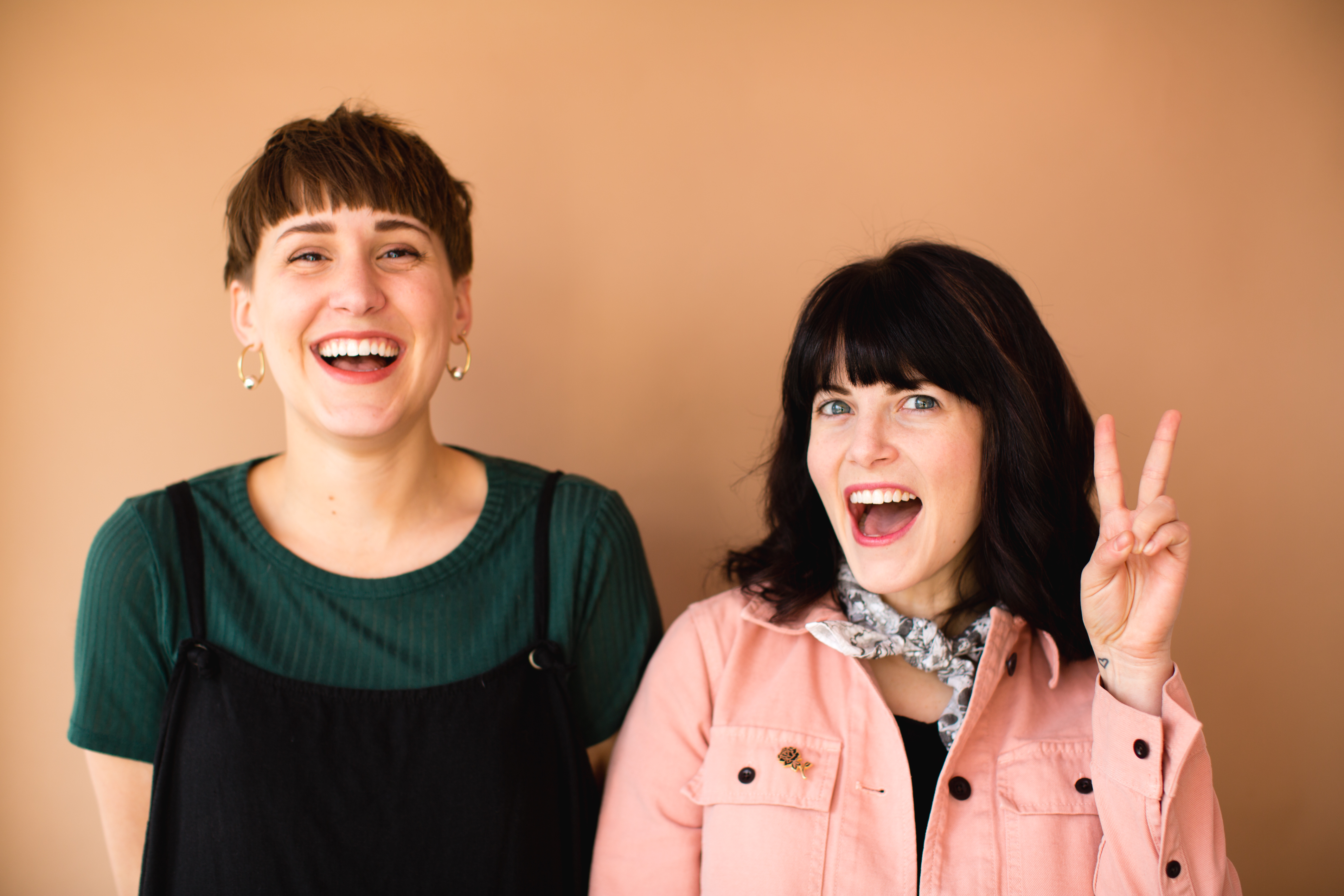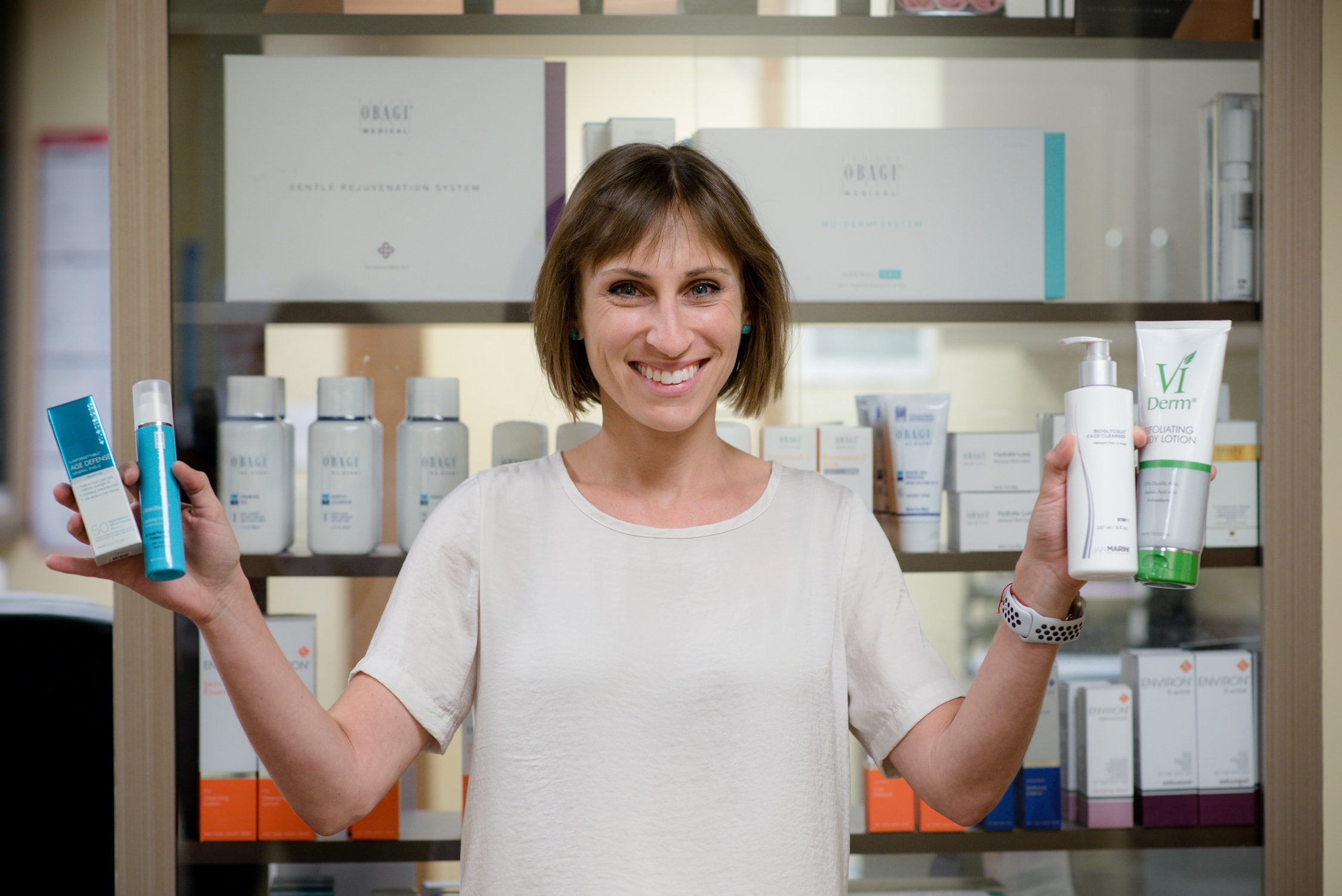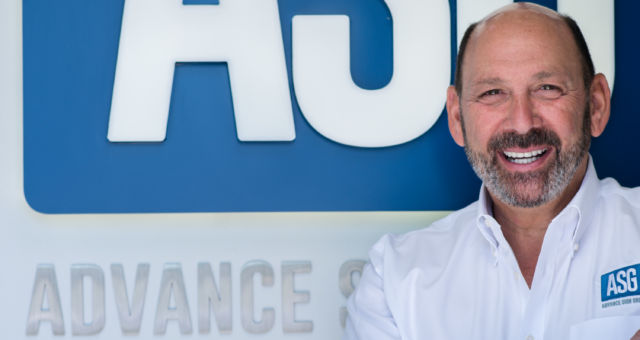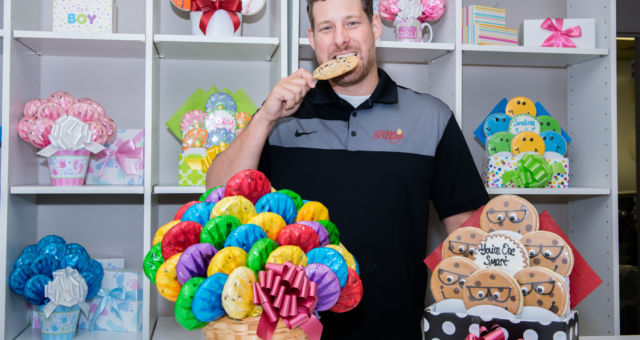What is your full name, title, and business name?
Andrew VanderLind, Business Owner, Where I’m From
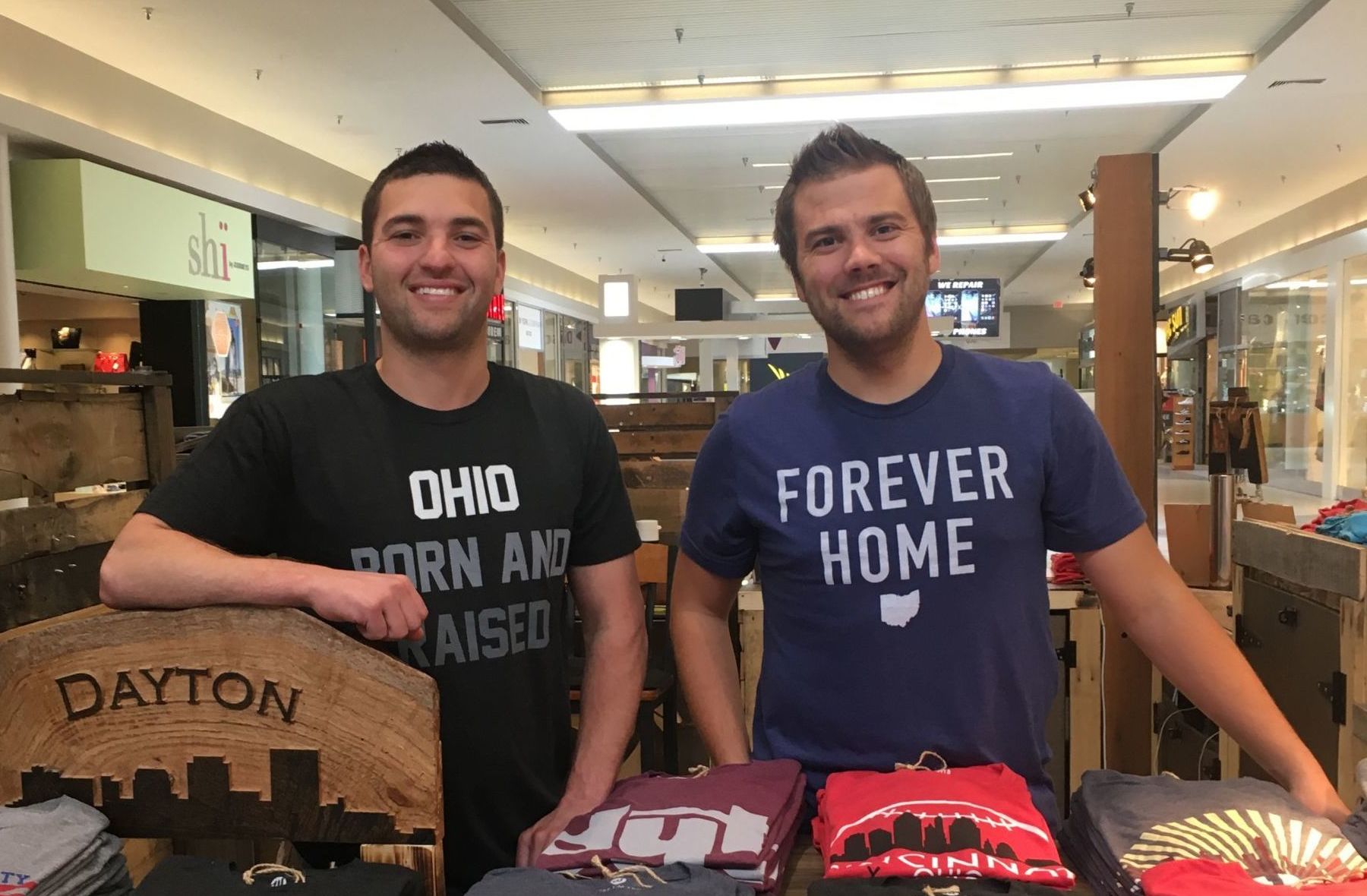 Give us a summary of your business in 200 words or less.
Give us a summary of your business in 200 words or less.
My business is a fashion retail company specializing in apparel that celebrates the people, places, and things of where you’re from. Where you’re from means something different to everybody and we try to capture that feeling of love and pride for where you’re from and what it means to you. Whether that means a place, country, team, company, etc., we try to celebrate whatever it is that is special to you and whatever it is that made you who you are today. We are focused on making all of our apparel the highest possible quality and take pride in the fact that we make everything in America. While it might be more expensive and work to have all of our products custom made here in America, we are very proud of it and it is a huge part of our core business.
How did the idea for your business come about?
Myself and one of my best friends from college, Ryan, had worked on starting up a couple other businesses however, none of them worked out. Though, we realized through our failures that we do work well together. As a lot of people know, people caution two friends working together and people hear a lot of stories of it not going too well. My wife, Casie VanderLind, and I had started a non-profit cancer apparel company and Ryan expressed his interest in jumping in and helping out so we followed through with that. The subject matter is very heavy and personal between us because my wife is a two time cancer survivor which is also the reason why we started it. The non profit was very serious stuff and was a lot on our hearts everyday but, we learned that we worked well together and liked working with each other. While we were doing it, we had some great ideas for Ohio t-shirts but we felt we didn’t have a way to express them within the current business. So, we started a new company with the three of us about celebrating where we’re from. I actually grew up all over the country and even lived in Europe for three years so to me, where I’m from has always meant different things. When we initially started the business, it was primarily to pay off the bar tabs and just have fun because we all had full time jobs.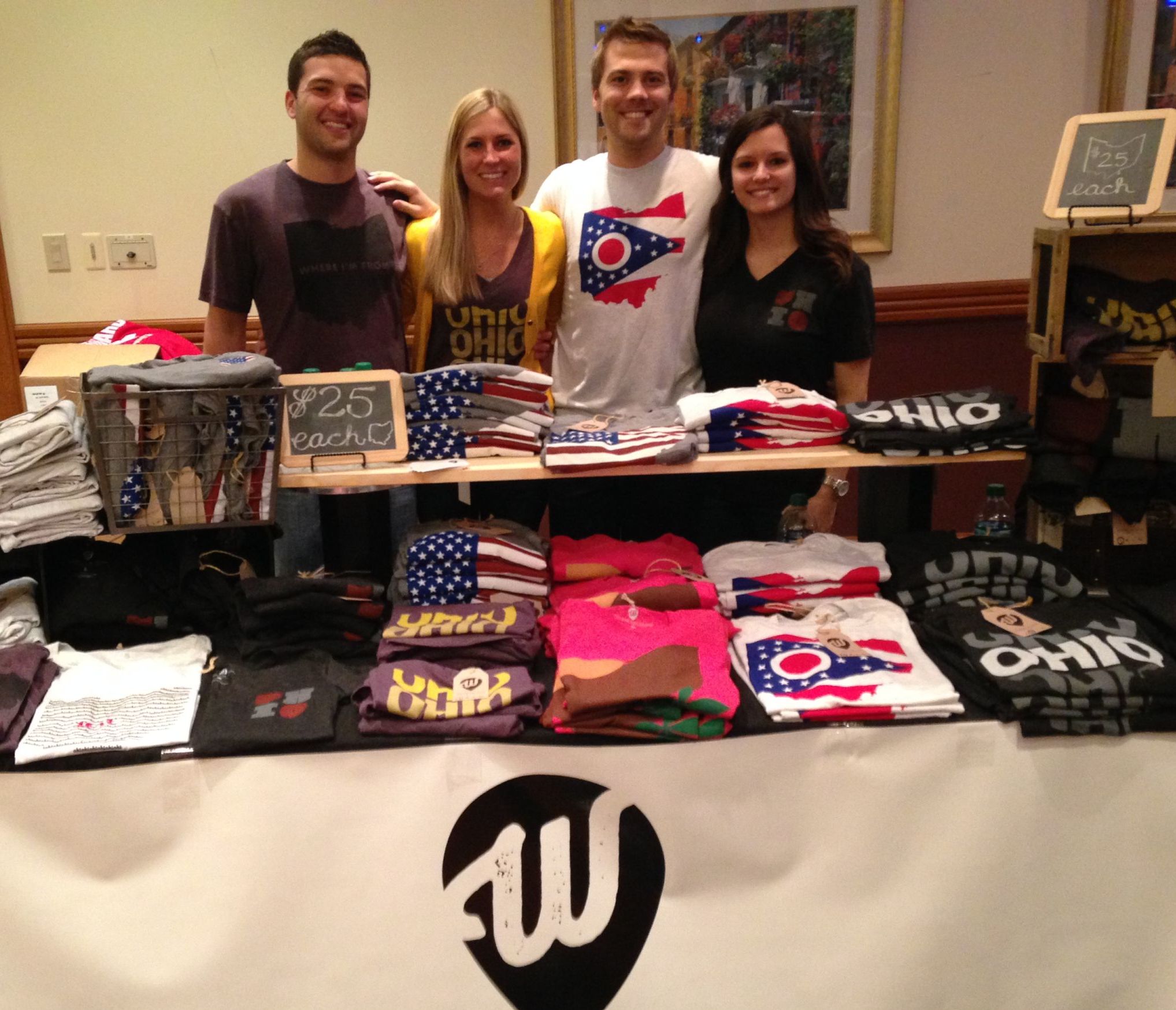
What was the turning point for your business? Was there a moment you knew you had something special?
About two to three months in, we got into a couple of consignment stores around Ohio. The providers and the storekeepers informed us that we were the number selling brand out of all the Ohio apparel companies. Then in the summer around July, we did a market at Polaris Mall and sold out of all our shirts. I had to call my sister to get more shirts from my apartment so that she could bring them to us at Polaris. That’s when we knew it wasn’t a fun side hobby anymore, it was much more interesting than that.
What does it mean to you to be an entrepreneur and business owner?
It has shaped into my identity now, it’s who I am. I always liked the idea of working for myself but I never sought out to be a business owner or anything like that and I initially was aiming for the corporate America life with a degree in finance and economics. I had a really good job with Cardinal Health that I liked and I didn’t mind working for a boss either. But now, over the last seven years, it shaped who I am and I can never go back to how I was. It totally changed me by making me more independent, creative, and my problem solving skills have significantly increased. Pretty much all I do now is solve, create, and think rather than “do”.
What does the city of Columbus mean to your business?
The business started in Columbus, it’s headquartered in Columbus, our biggest storefront is here, and it’s what our whole team calls home. It’s been such a cool experience because there’s a lot of entrepreneurs and a lot of like minded individuals. Columbus has become kind of like a hub for small business owners and entrepreneurs so it’s been really nice, not only the city itself but the community of people that are kind of able to share their challenges and how they overcame them as well as suggesting new things to upcoming entrepreneurs.
Another business owner helped us get our start by getting one of our original consignment stores and a separate small business helped build up our kiosks. Everything we do is connected with other small businesses, we work with them everyday, we outsource some work to them so it’s nice we’re in a city that places importance on that. If Ryan and I are ever going through a challenge, we have a mini network of entrepreneurs that we can go to, it’s almost like coworkers.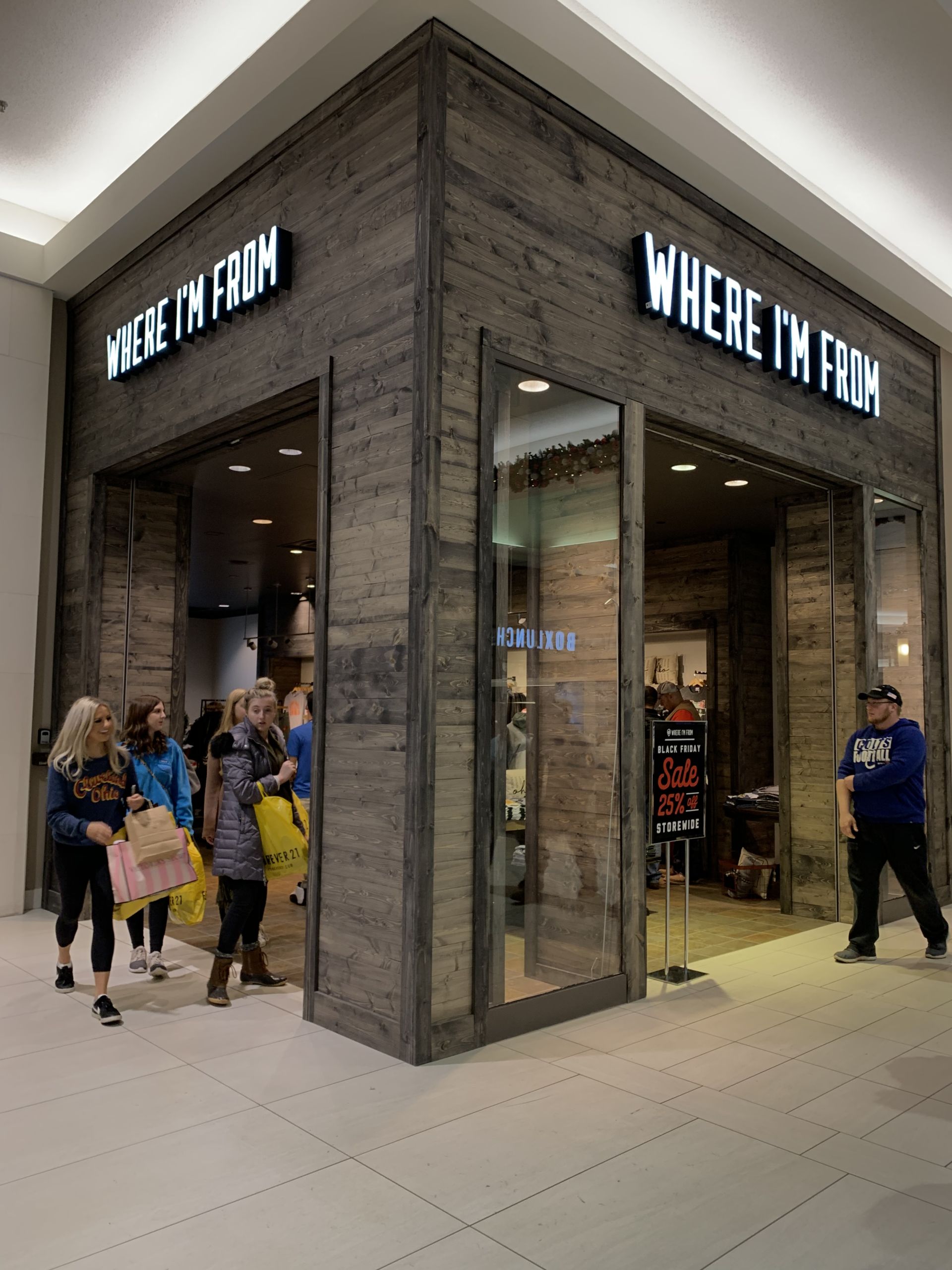
Are you from Columbus? If not, please explain what brought you here and ultimately what made you stay.
After I graduated college, I kind of wanted to stay in Ohio. At the time I graduated college, I had lived in eight different households at the age of 21 so I was pretty young. Columbus has always felt like home, it is where I was born. I lived here a couple of years and had come back throughout my life. So I kind of centered my job search around Columbus. I stayed here because I love it.
After college, everyone scatters and then over the years, I have recruited almost all my friends back to Columbus. Obviously it’s not all for me but I’ve been pitching the city which is easy to do because it’s been growing so much. It’s one hundred percent home for me and my family. I’m looking forward to staying put and giving my kids a steady home for their eighteen years growing up.
What’s the number one piece of advice you’d give to anyone wanting to start a business?
Focus on your business and your brand. Don’t worry about failures, money, or profits, I still don’t worry about profit. Cash flow is king, you have to focus on cash flow and learn about that. If you’re getting ready to start your business, don’t just expect to open your doors or website and all of a sudden there is going to be sales or people lining up for you. You have to go out there and get it. Don’t expect anything from just your Instagram account or network. Before you start your account, get a plan in place for 3-6 months of how you’re going to go get the customers. If you’ve already started, don’t worry about the bottom line, worry about growing your business/brand and you will figure the rest out.
What do you wish you knew about entrepreneurship before starting your business?
I wish I knew there’s so many challenges and problems, obviously COVID was a major outlier. There’s nobody telling you what to do or saying how to get through a challenge or saying “when this pops up, here is what you do”. You have to figure it out on your own and very early on I realized that when a problem arose, it was just me and Ryan trying to figure it out. A lot of the time there is no right answer and there’s no wrong answer either. So trying to figure out what’s the best answer for you and the business but it takes a lot of time, especially in corporate America when your whole year is planned down to the day a lot of times (talking about previous Cardinal Health job). There is not a lot of time for creative thinking opportunities, especially in finance so coming from my world it was a little bit different.
What’s the most challenging part of your business (i.e, what keeps you up at night)?
I guess for my business in particular, it’s the seasonality. In retail, it’s a very seasonal business and not just with holidays but back to school, spring, fall, etc. There are weeks where you can’t even think because you’re so busy but then there are also weeks where it is slow and calm. The same amount of money doesn’t come through the door every week, everyday, or every month.
For our business, we’ve grown so much and so fast that it’s hard to forecast and project out sales because every year we add more and grow. So, it’s hard to build and plan when it’s hard to project out sales. There’s been so many holiday seasons where early December comes around and we’re out of our most popular stuff. As a finance guy, that’s stressful to me because I want to have everything planned out and organized which is hard to do with a growing business that’s very seasonal.
What was your biggest mistake and what did it cost you?
Growing too fast and it cost us growing. We opened in 2014, in 2015 we opened six more stores and in 2016 during the holiday season, we had 15 outlets which was very very very fast growth. We kind of assumed that since the first few locations were successful, everywhere will be successful and will be successful anywhere. We opened up spaces as fast as we could and that really hurt us in a lot of different ways. In 2017, we had spent so much on growing that it took us a couple years to recover and therefore our growth had slowed. Everyone says don’t grow too quickly and you don’t really understand it until you make that mistake. You don’t understand the long term repercussions and what it actually means.
In 2017, we realized an error in our way and kind of chipped at our model and up until that point we were going off the kiosk model. We opened up our first store in 2017 and we realized that operationally, it wasn’t much harder to run a store than a kiosk but we did a lot more sales in the store. We could do a lot more things by switching to storefronts like grow the web business, grow the wholesale business without having to manage all the kiosks. So between 2017 and 2020, we closed down all of our kiosks and either converted them into storefronts or got out of those locations which put us down to seven locations.
So we probably could have opened up more storefronts if it wasn’t for the two years of just rapid growth. Without that though, we wouldn’t have gotten the brand exposure, the customers, and the sales were thanks to that rapid growth.
What tool has helped you the most for your business (invoicing, accounting, shipping, plugin for website, etc.)?
Having a good attorney. We haven’t gone through any legal trouble by any means but he almost acts like a consultant. Especially within the last year with all the craziness, he’s been fantastic. Having a confidant/professional who’s looking out for you. We have a great accounting company that we use which has been helpful. We try to outsource things that we’re not good at, so that we can focus on things that we are good at. As far as software, there’s a lot of web fulfillment services which we’ve used in the past that are good and are helpful. They helped us streamline and automate some things and saved us a lot of time. Investing time and resources early on in a good tool that will save you money and time in the long run is so worth it.
What was an idea that you spent a lot of time on or thought would make a big difference in your business that didn’t pan out.
The biggest example of which we thought was going to be the key was opening up as many possible locations. We didn’t even care what mall we were going into, we would just open them up and thought we’ll make the money wherever it comes. If the rent was lower, we just thought that we would make more money and not that the rent was lower because it wasn’t as good of a location.
We spent a lot of money, effort, and time into just getting these places open and ended up finding out that we can’t sell twenty dollar t-shirts in some of these locations because there is just no market for them. We thought it would be a big home run if we just open open open but it definitely wasn’t the best idea. It was also cheaper for us to negotiate leases in multiple locations at the same time with the same mall companies.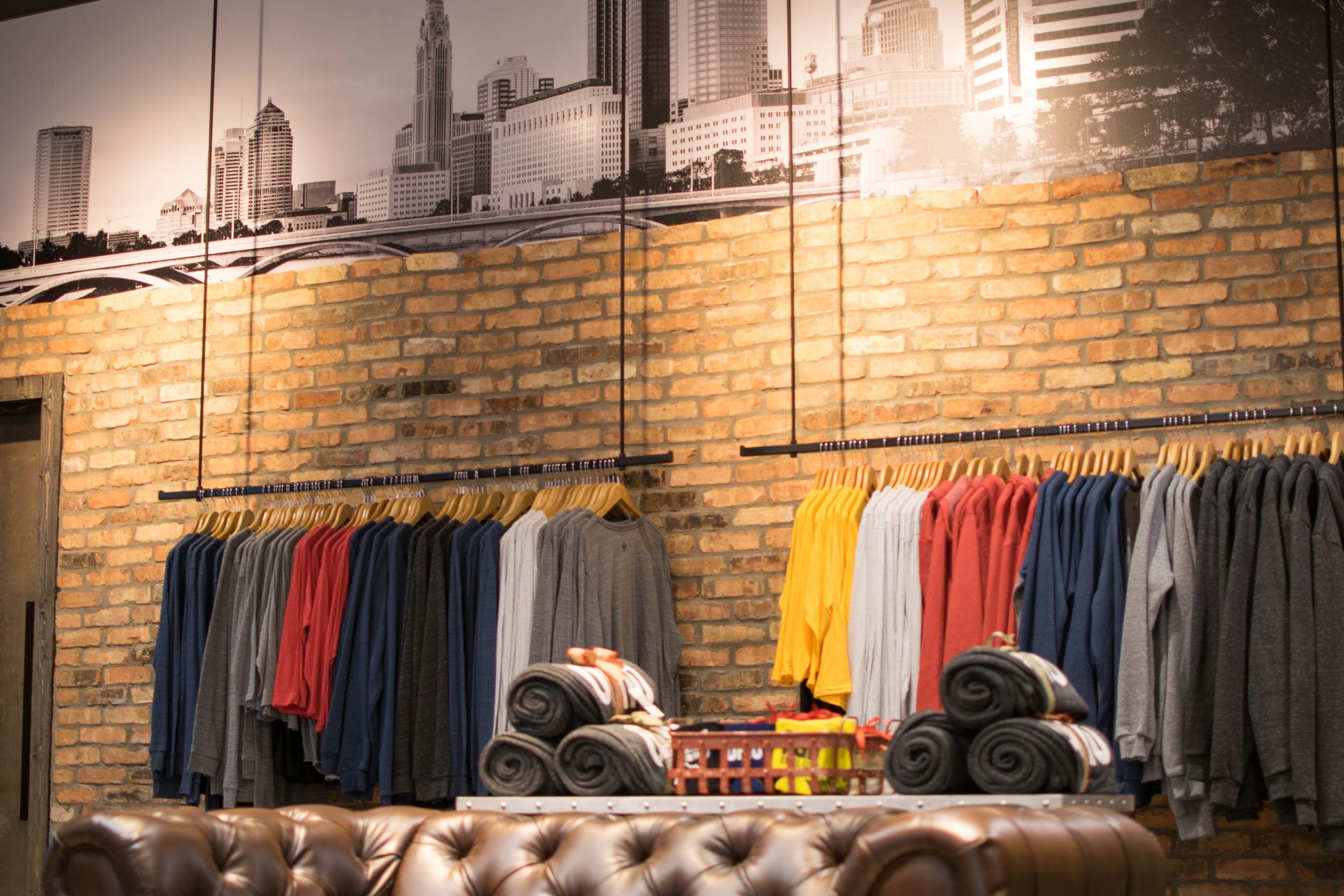
Who do you vent to when you have a business problem?
Me and Ryan have a mini network of business owners that we can talk to. You can have a beer and a vent session and you can call up different people who have gone through the same thing.
What is your end goal and where do you see your business in the next 10 years?
To continue growing. Introducing our brand to as many customers as possible and to continue to diversify our offerings. We started out with just unisex t-shirts and now we have dozens of different types of apparel that we offer. So to continue growing that, growing our team, hiring more team members and just continue to grow as a company. We don’t have a set number of locations, states, or office employees. We don’t have any hard goals like that because we want to be flexible and we want to go where the business takes us.
We want to be able to read the industry, market and times and make sure that we are smart with our growth as far as our hiring and continue to sell as many t-shirts to as many customers as possible. We’re very flexible as a business and we can change on a dime. One of the reasons we have been successful and one of the reasons that we will continue to be successful is because we control our own supply chains. We make all our own stuff and design it ourselves. It allows us to adapt quickly and try to get ahead of some.

